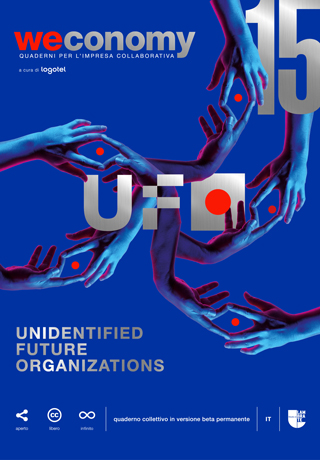The learner survives. Will that be enough? Reflections on change in organizations
How the theory of punctuated equilibria can inspire us in shaping learning mechanisms for the hybrid organizations of the present and future.

How the theory of punctuated equilibria can inspire us in shaping learning mechanisms for the hybrid organizations of the present and future.

“Gli interrogativi a proposito del change stanno catturando l’attenzione delle organizzazioni da diversi anni. […] Comprendere i processi di cambiamento è particolarmente critico ora mentre le persone nelle organizzazioni stanno lottando per tenere il passo di fronte a drammatiche alterazioni del contesto economico, tecnologico, sociale e politico”. In poche righe Connie J. G. Gersik racchiude alla perfezione la sfida che stiamo affrontando, il senso di urgenza, la necessità di comprendere, per poi guidare, a cui le nostre organizzazioni sono chiamate. C’è un solo però: sono state scritte esattamente trent’anni fa. Questo significa forse che dobbiamo mettere in dubbio i cambiamenti organizzativi vissuti negli ultimi decenni o la portata della sfida attuale?
Una risposta interessante ce la offre la stessa Gersik che, rifacendosi alle teorie di biologia evoluzionistica di Niles Eldredge e Stephen Jay Gould, concettualizza il change come un equilibrio punteggiato: un’alternanza di lunghi periodi caratterizzati da adattamenti incrementali e brevi periodi di salto di livello rivoluzionario. Eccoci, noi siamo qui, in un salto rivoluzionario, un po’ affaticati dai cambiamenti degli ultimi decenni che solo ora ci appaiono incrementali se paragonati al momento di rottura attivato dalla pandemia. In questo contesto il ruolo dell’apprendimento è vitale perché, col nostro salto, abbiamo appena staccato i piedi da terra, quando e dove atterreremo sono le domande di cui ogni singola organizzazione dovrà progettare le risposte nei prossimi anni.
Il Workplace Learning Report 2021 di LinkedIn racchiude una serie di dati incoraggianti sulla centralità dell’apprendimento in termini di risorse dedicate e di ore di formazione fruite. E infatti in questi mesi abbiamo imparato, sì imparato tanto. Basterà? Credo di no e ho almeno due buone ragioni per pensarlo.
1. In mancanza di un modello solido a cui ancorarci abbiamo spesso attivato dinamiche di autoapprendimento, indispensabili in fase di emergenza, ma che ora mostrano tutti i loro limiti. Da una parte abbiamo un patrimonio di sperimentazioni di valore che, però, fatichiamo a far emergere e diffondere, dall’altra sono emerse modalità di lavoro poco efficaci che si stanno radicando e che rischiano di generare un profondo divide all’interno delle organizzazioni.
2. Allo stesso tempo siamo stati coinvolti in una quantità, a volte eccessiva, di iniziative formative nel tentativo – non sempre efficace – di supportarci nella trasformazione. I meccanismi di ascolto per identificare i bisogni formativi, le modalità di messa a terra, gli strumenti di misurazione e riprogettazione non sono adeguati ad affrontare una sfida di questa portata. Attenzione: offrire troppo di qualcosa che poi non si rivela utile non farà altro che renderci impermeabili alle prossime iniziative formative.
Un salto rivoluzionario delle organizzazioni e dei modelli di lavoro richiede un altrettanto rivoluzionario salto dei sistemi di apprendimento, dagli obiettivi alle metodologie, dai modelli di ingaggio alle esperienze di fruizione. Un salto che si gioca a due livelli di complessità.
1. Abilitare le persone a vivere il quotidiano. Per facilitare le persone nel selezionare e mettere in pratica ciò che di buono hanno sperimentato grazie alla condivisione di nuovi modelli, per quanto immaturi e instabili. Costruire e potenziare le skill che hanno un’applicazione immediata, che abilitano rispetto a nuovi strumenti e modalità di interazione. Creare convergenza verso ritualità condivise che rendono fluido il lavoro individuale e di team. L’obiettivo è uscire da un abuso di soggettività che limita il pensiero critico e ricostruire pratiche comuni che generano automatismi positivi e liberano energia, che danno forma e forza alla quotidianità lavorativa.
2. Accompagnare il reshaping dell’organizzazione. Per costruire un mindset e un set di capabilities che abilitino le persone a vivere la trasformazione. Per generare forti poli di attrazione capaci di trasmettere continuativamente identità, scopo e sfide dell’organizzazione. Per progettare contesti che favoriscono il sense making, la creatività, il problem solving, la diffusione delle conoscenze. Per dare forma a meccanismi di scambio e relazioni che generino forti connessioni a tutti i livelli dell’organizzazione. E, infine, per creare punti di riferimento capaci di orientare verso un workstyle condiviso e allo stesso tempo di generare processi di singolarizzazione. In questo caso l’obiettivo è creare le basi per una cultura potente in cui elementi stabili (per esempio valori, mission ecc.) convivono in maniera armonica con una dimensione trasformativa. E così abitare un futuro dai tratti incerti garantendo lo sviluppo del valore per le persone, per il business e la collettività.
Da dove iniziare? Il primo passo è immergersi completamente nel problema, abbracciarlo in tutta la sua complessità, per poi scomporlo e affrontarlo in tutte le sue dimensioni. Contemporaneamente e senza fermarsi per farlo. Facile, no? Per niente e proprio per questo è un’occasione unica.

Published in Weconomy 15 – UFO. Unidentified future organizations
